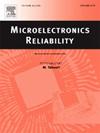Physics-informed deep learning approach for nanoindentation-based thin film analysis
IF 1.9
4区 工程技术
Q3 ENGINEERING, ELECTRICAL & ELECTRONIC
引用次数: 0
Abstract
This study presents an application of a physics-informed deep learning framework to improve and accelerate the yield stress characterization of thin films used in microelectronics to ensure long-term mechanical reliability via nanoindentation measurements. By combining finite element modeling (FEM) with neural networks, an accurate model for thin film yield stress has been demonstrated. This model offers comprehensive insights into the mechanical properties and plasticity of thin films under various loading conditions. The decision-making process of the model is investigated using explainable AI visualization techniques, enhancing the model's transparency and interpretability. Nanoindentation experiments on metal and dielectric thin films validate the high accuracy of the proposed deep learning models. This approach allows for the rapid analysis of load-displacement curves in milliseconds while providing high accuracy in yield stress estimations. Consequently, the proposed methodology significantly accelerates the characterization process and provides accurate yield stress estimations for thin film nanoindentation measurements, which is crucial for applications in microelectronics and the reliability of semiconductor devices.
基于纳米压痕的薄膜分析的物理信息深度学习方法
本研究提出了一个物理信息深度学习框架的应用,以改进和加速微电子用薄膜的屈服应力表征,通过纳米压痕测量确保长期的机械可靠性。将有限元模型与神经网络相结合,建立了薄膜屈服应力的精确模型。该模型提供了对薄膜在各种载荷条件下的力学性能和塑性的全面见解。利用可解释的人工智能可视化技术研究了模型的决策过程,提高了模型的透明度和可解释性。金属和介电薄膜上的纳米压痕实验验证了所提出的深度学习模型的高精度。这种方法可以在毫秒内快速分析载荷-位移曲线,同时提供高精度的屈服应力估计。因此,所提出的方法显著加快了表征过程,并为薄膜纳米压痕测量提供了准确的屈服应力估计,这对于微电子应用和半导体器件的可靠性至关重要。
本文章由计算机程序翻译,如有差异,请以英文原文为准。
求助全文
约1分钟内获得全文
求助全文
来源期刊

Microelectronics Reliability
工程技术-工程:电子与电气
CiteScore
3.30
自引率
12.50%
发文量
342
审稿时长
68 days
期刊介绍:
Microelectronics Reliability, is dedicated to disseminating the latest research results and related information on the reliability of microelectronic devices, circuits and systems, from materials, process and manufacturing, to design, testing and operation. The coverage of the journal includes the following topics: measurement, understanding and analysis; evaluation and prediction; modelling and simulation; methodologies and mitigation. Papers which combine reliability with other important areas of microelectronics engineering, such as design, fabrication, integration, testing, and field operation will also be welcome, and practical papers reporting case studies in the field and specific application domains are particularly encouraged.
Most accepted papers will be published as Research Papers, describing significant advances and completed work. Papers reviewing important developing topics of general interest may be accepted for publication as Review Papers. Urgent communications of a more preliminary nature and short reports on completed practical work of current interest may be considered for publication as Research Notes. All contributions are subject to peer review by leading experts in the field.
 求助内容:
求助内容: 应助结果提醒方式:
应助结果提醒方式:


